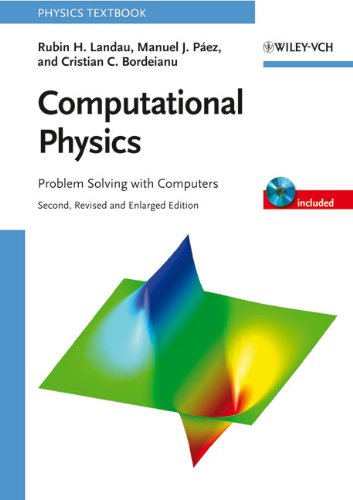
Computational Physics: Problem Solving with Computers
by Rubin H Landau, Manuel J Paez, Cristian Bordeianu
Publisher: Wiley-VCH 2012
ISBN/ASIN: 3527406263
Number of pages: 526
Description:
This upper-division text surveys many of the topics of modern computational physics from a computational science point of view. Its emphasis on learning by doing (assisted by many model programs), as with 2nd Edition, but with new materials as well as with Python.
Download or read it online for free here:
Download link
(39MB, PDF)
Similar books
 Introduction To Monte Carlo Algorithms
Introduction To Monte Carlo Algorithmsby Werner Krauth - CNRS-Laboratoire de Physique Statistique
The author discusses the fundamental principles of thermodynamic and dynamic Monte Carlo methods in a simple light-weight fashion. The keywords are Markov chains, Sampling, Detailed Balance, A Priori Probabilities, Rejections, Ergodicity, etc.
(12341 views)
 Computational Physics
Computational Physicsby Konstantinos Anagnostopoulos - National Technical University of Athens
This is an introduction to the computational methods used in physics and other scientific fields. It is addressed to an audience that has already been exposed to the introductory level of college physics, usually taught during the first two years...
(9036 views)
 Introduction to Computational Physics and Monte Carlo Simulations of Matrix Field Theory
Introduction to Computational Physics and Monte Carlo Simulations of Matrix Field Theoryby Badis Ydri - arXiv
We give an elementary introduction to computational physics. We deal with the problem of how to set up working Monte Carlo simulations of matrix field theories which involve finite dimensional matrix regularizations of noncommutative field theories.
(7304 views)
 Scientific Computing
Scientific Computingby Jeffrey R. Chasnov - Harvey Mudd College
This course consists of both numerical methods and computational physics. MATLAB is used to solve various computational math problems. The course is primarily for Math majors and supposes no previous knowledge of numerical analysis or methods.
(8194 views)